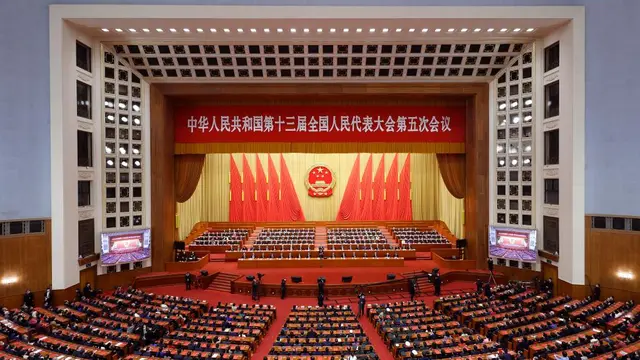In China's new development blueprint drawn up by the Communist Party of China (CPC) for the country's march towards modernization, the rule of law is a key term that corresponds to a nation's governance: The state must act in accordance with the laws it has promulgated and these laws are characterized by, for example, fairness and justice. A special term, overall law-based governance, is coined in this regard.
Since the inauguration of overall law-based governance in 2012, the CPC, a Marxist-Leninist party as well as the ruling party mandated by the Chinese Constitution, has been refining the guiding theory for the rule of law in the Chinese context. In the course of law-based governance in all respects, a historic incident was witnessed on November 16-17, 2020 when the latest theoretical achievement on the rule of law in the Chinese context was formally named Xi Jinping Thought on the Rule of Law (Xi Thought).
The Xi Thought has its origin in the Marxism on the rule of law and derives certain merits from the root of the traditional Chinese culture. Moreover, its essence also emanates from the robust development of the overall law-based governance in the country, which is recently represented by enactment of the Civil Code, and the acceleration of legislative works in some key sectors, such as national security and digital economy.
The Xi Thought is rich in connotation, profound in exposition, rigorous in logic, and broad in coverage. It is in this context that Xi Thought is in a perfect position to answer major questions concerning why and how overall law-based governance should be advanced. Xi Jinping, general secretary of the CPC Central Committee, stressed that "the reason why we advance law-based governance in all respects and take measures to unswervingly enforce the rule of law is for the sake of generations to come and long-term development." It is also in this context that the Xi Thought was ushered in to serve as the fundamental guideline for law-based governance in China.
Known as "Eleven Upholds" in Chinese, the highlights of the Xi Thought embody rich implications for the Chinese-styled rule of law. Take the second and ninth requirements as examples, which are respectively, taking a people-centered approach and taking a coordinated approach to promoting the rule of law at home and in matters involving foreign parties. The people-centered approach clearly requires that the people must be bestowed the right to participate in decision-making, to supervise the operation of power and to enjoy judicial equality.
The centrality of the people is manifested in all aspects of the overall law-based governance. A look at the Civil Code, which was a milestone event in the legislative history, will show the code is an illustration of the CPC's strong will to meet people's growing demands by providing strong protection of privacy and data as a way of preventing leaks of personal information. As a matter of fact, Xi himself has repeatedly emphasized that the ultimate goal of China's rule of law is to protect the interests of the people.
The ninth requirement results from the practice of implementing the reform and opening-up policy. It underscores the necessity to speed up the coordinated layout of international governance along with domestic governance. Given that global governance encompasses domestic governance of each country and international governance, it is fair to argue that the ninth requirement of the Xi Thought is set to promote global governance.
Not long after the Xi Thought was officially launched, the CPC Central Committee, in line with the Xi Thought, promulgated an outline in pursuit of building a law-based society for the five year-period (2020-2025), the first special plan for advancing rule of law in the country since the founding of the People's Republic of China. The outline spells out the guiding thoughts, primary principles and overall goals for building a society based on the rule of law in China. Under the guidance of the Xi Thought, implementation of the outline is underway for promoting law-based governance. It can be expected that a system of distinctively Chinese socialist rule of law will take shape by 2025, thus accelerating the process of rejuvenation of the Chinese nation.
(CGTN)
 简体中文
简体中文

